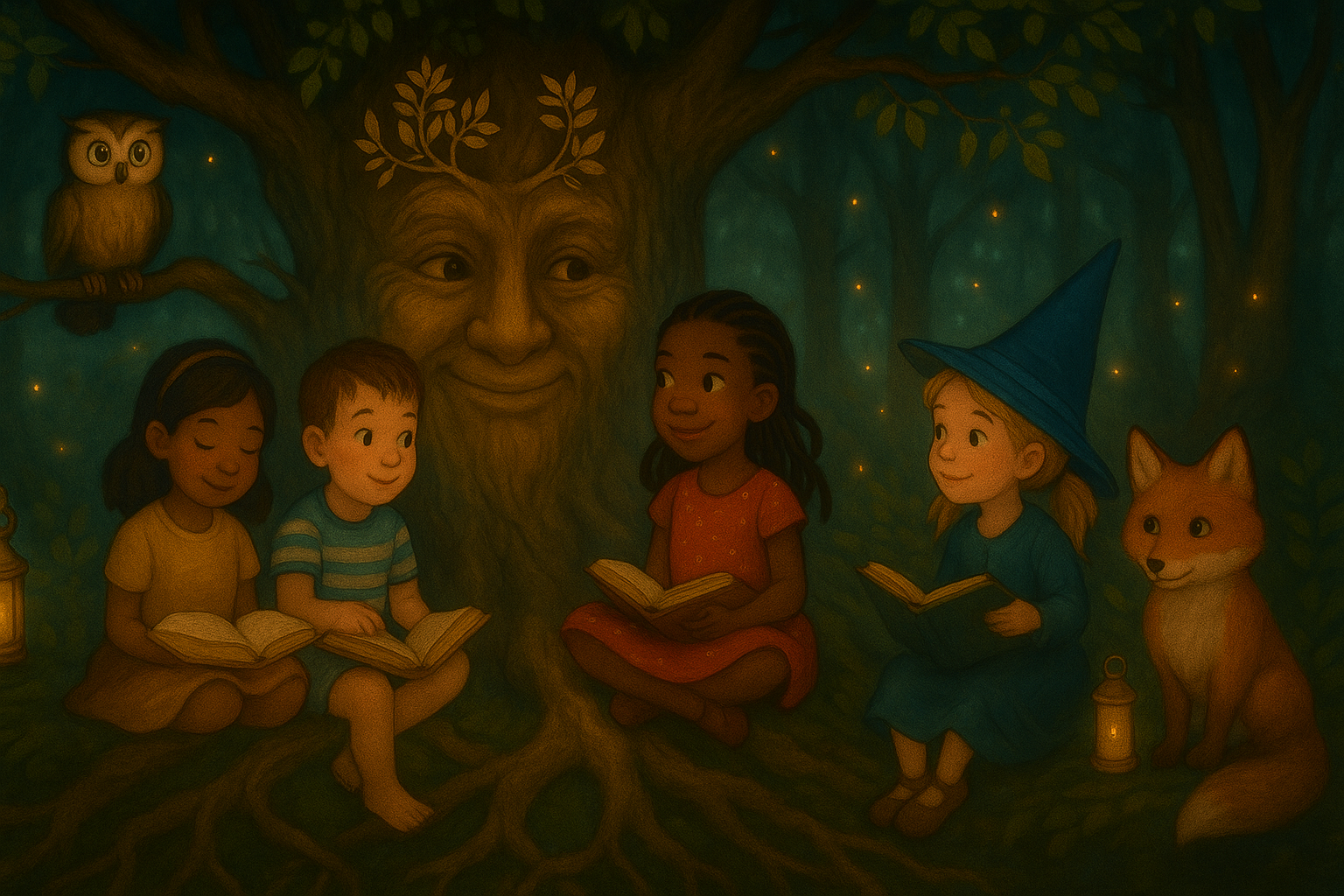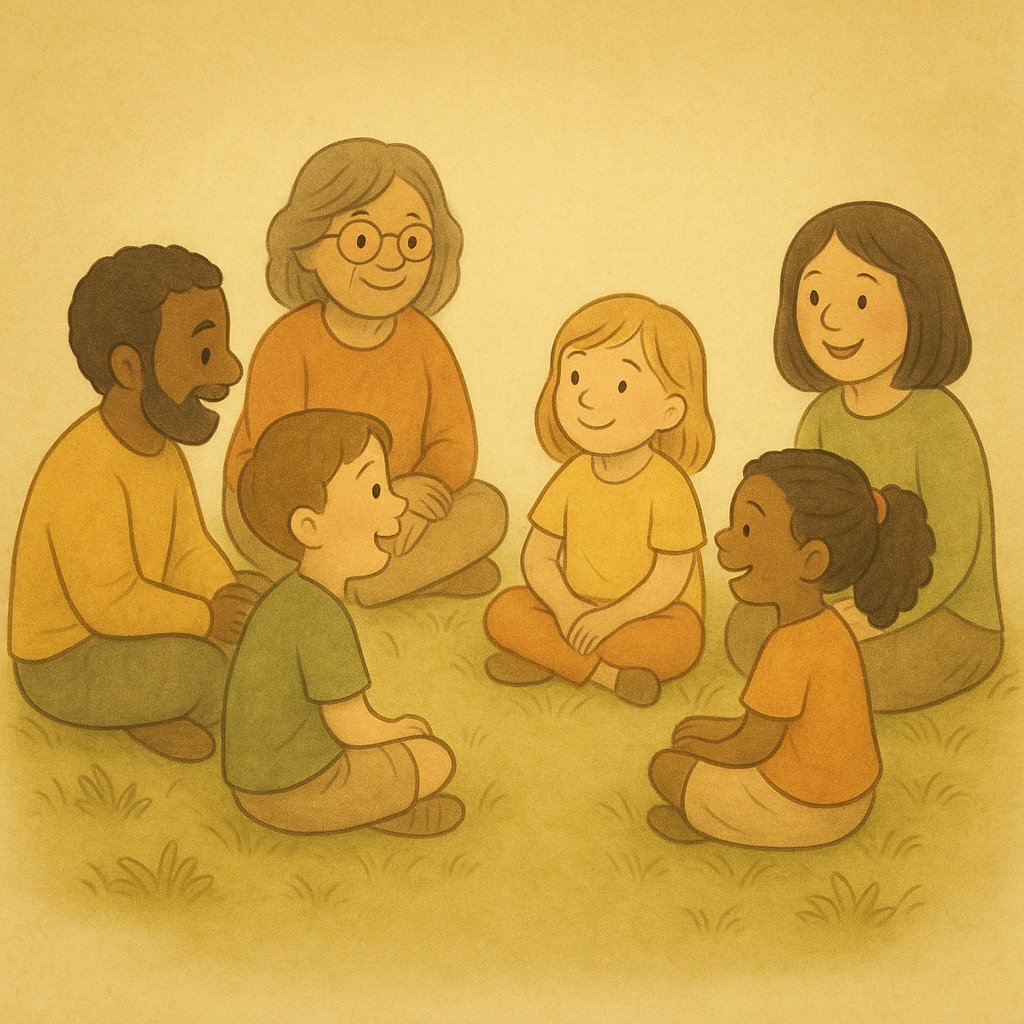Why Philosophy for Kids?
Children are constantly trying to make sense of the world. Philosophy gives them language and space to explore their biggest wonderings.
"What makes a good person?"
"Why do we feel lonely?"
"Is it okay to be different?"
"Can we disagree and still be kind?"

We don't give them answers — we give them room to wonder. Our books introduce philosophical themes through story, offering gentle entry points for kids to reflect on identity, fairness, change, belonging, and more.
What Philosophy Brings to Your Family
Critical Thinking
Children learn to question, analyze, and form their own thoughtful opinions...
Emotional Intelligence
By exploring feelings through stories, kids develop vocabulary and strategies...
Confidence & Voice
When children's questions are valued, they develop confidence...
Empathy & Perspective
Philosophical discussions naturally lead to considering others' viewpoints...
Family Connection
Deep conversations create lasting bonds and give you insight...
Resilience
Kids who can think through problems philosophically are better equipped...
The Science Behind Social-Emotional Learning
Research shows that SEL skills are foundational not only to learning, but to living well.
Social-Emotional Learning (SEL) equips children with vital life skills that go beyond academics: empathy, emotional regulation, responsible decision-making, and positive relationship-building.
Recent Research Findings
A 2025 study by Şahin, Eraslan, and Özkan found that adolescents with stronger SEL skills demonstrated healthier relationships, more responsible decision-making, and stronger emotional regulation. These outcomes aligned with higher academic engagement and life satisfaction.
Academic Success
SEL skills improve focus, persistence, and classroom behavior
Digital Resilience
Strong SEL acts as a buffer against negative effects of social media
Lifelong Skills
Self-awareness and regulation skills that last into adulthood

By integrating SEL into our books, children aren't just encouraged to think deeply about life—they're given the tools to navigate it with emotional intelligence and care.
How to Use These Books at Home
Transform reading time into connection time with these simple approaches

Bedtime Philosophy
Read one chapter together and let the day's worries transform into wonder...
Creative Response
After reading, invite your child to draw, write, or act out their thoughts...
Emotion Navigation
When big feelings arise, return to relevant stories...
Each book includes:
Discussion prompts that spark conversation
Reflection questions for deeper thinking
Activities to explore concepts hands-on
Tips for continuing the conversation
Tips for Meaningful Conversations
- There are no wrong answers in philosophy—celebrate your child's unique perspective
- Share your own wonderings and admit when you don't know something
- Use "I wonder..." instead of "The answer is..." to keep exploration open
- Follow your child's lead—if they're fascinated by one question, stay there
- It's okay to sit with uncertainty—not every question needs an answer
- Connect stories to real life: "Remember when we talked about being brave?"
Get Started Today
Choose how you'd like to begin your family's philosophical journey